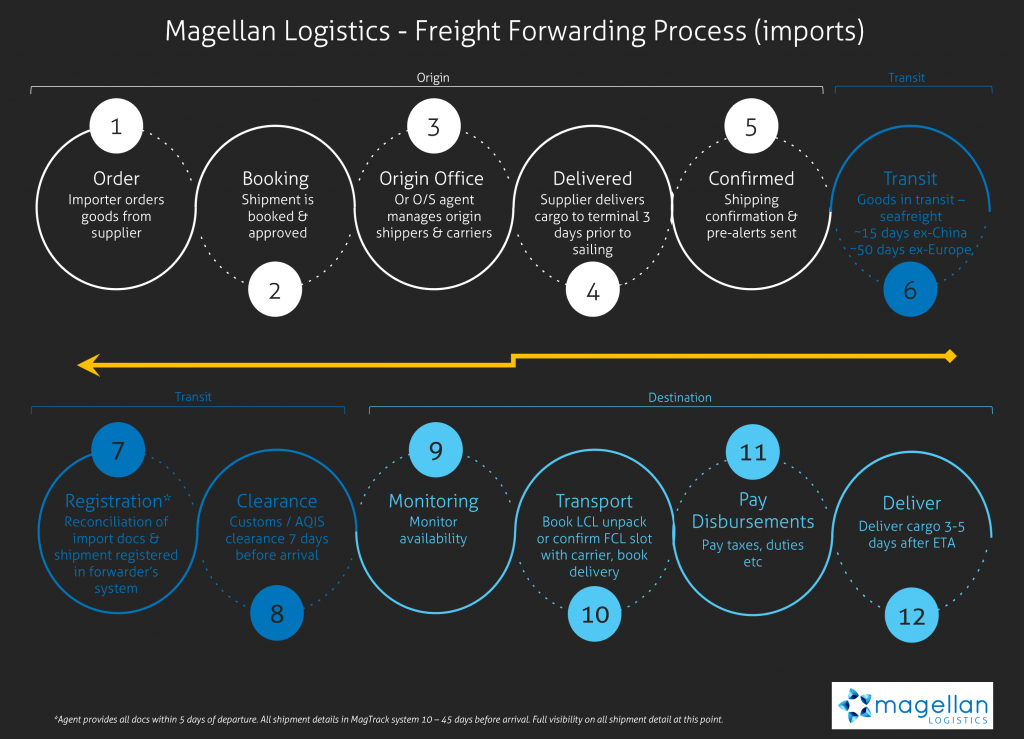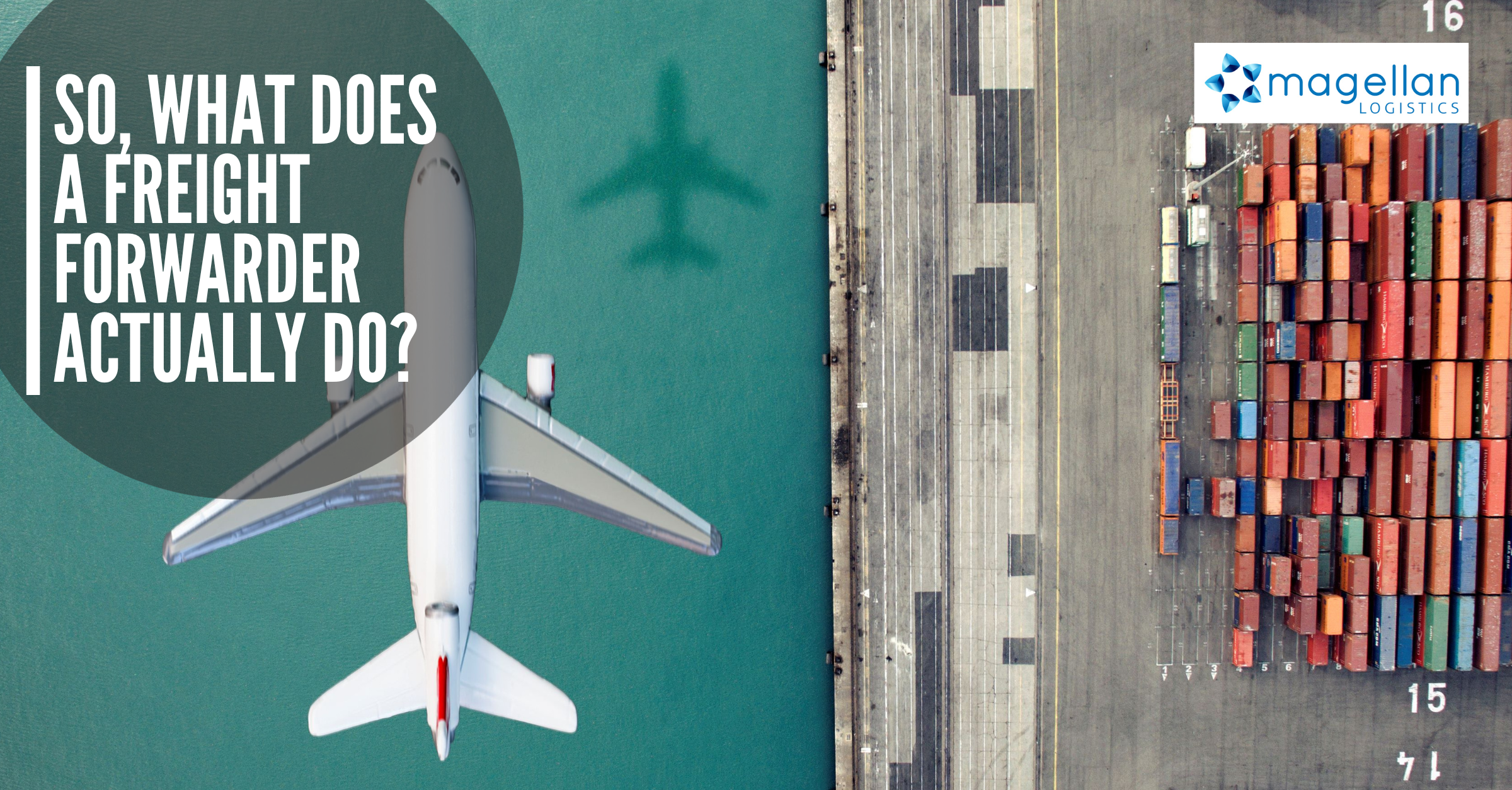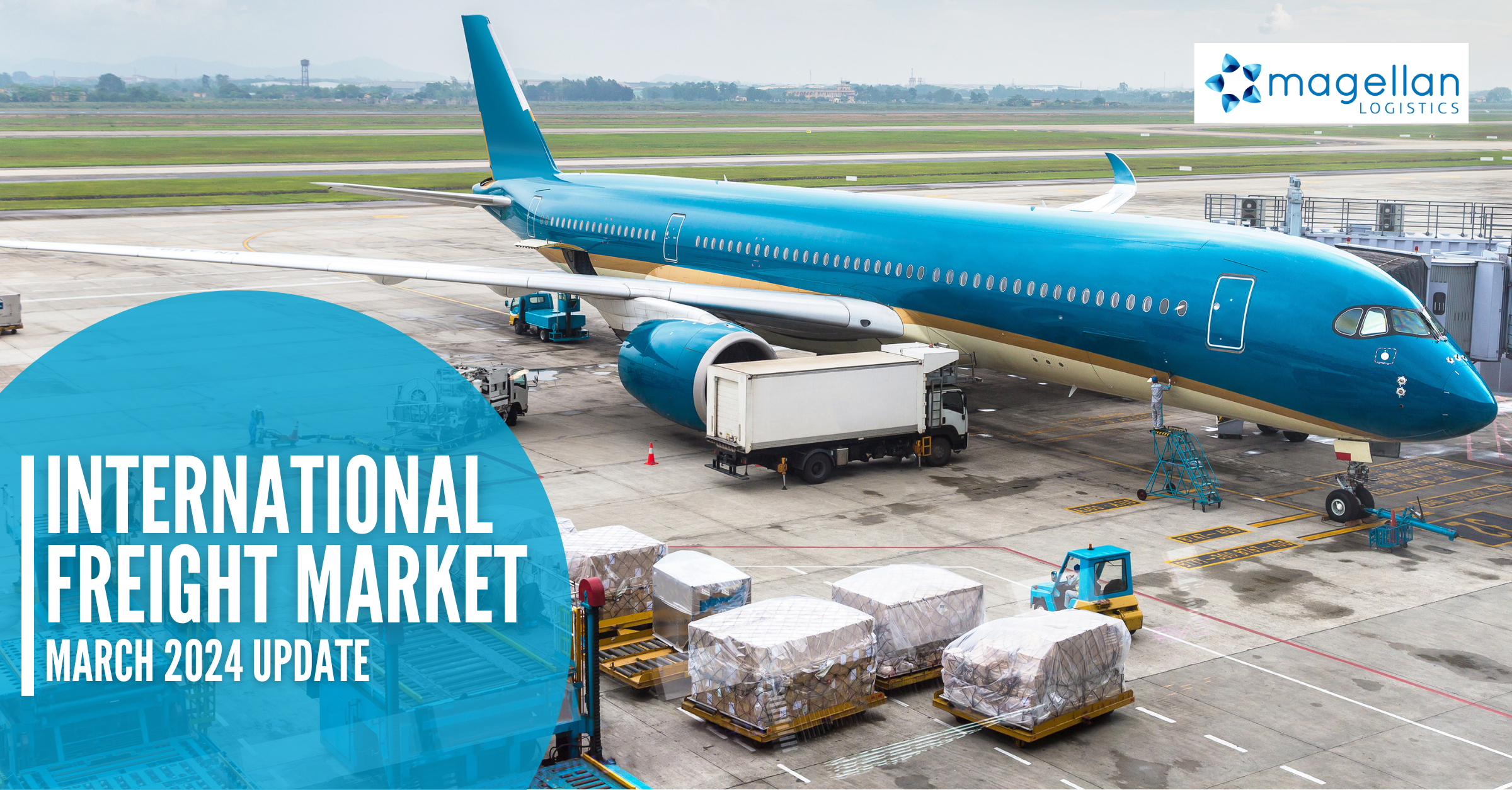Importing goods from overseas suppliers is pretty simple, right? It works like clockwork – you place an order, and your freight forwarder ensures it arrives at your warehouse as agreed, set and forget. Until it doesn’t, that is.
So, what do international freight forwarders do? They are complex businesses with many moving parts and specialist roles. They have an established network of overseas agents, carriers and transport operators and a thorough knowledge of warehousing, including 3pl. Freight forwarders can help you navigate each country’s customs clearance, documentation requirements, government duties, surcharges and taxes. In a nutshell, freight forwarders provide a door-to-door international shipping service and facilitate all stages of a shipment’s life cycle according to the agreed Incoterm . All behind-the-scenes activity, no one thinks about unless something goes wrong.
Freight forwarders are like well-oiled machines. They employ a series of closely followed processes, and the system ensures both import and export cargo arrive as and when expected. In recent times, a series of supply chain shocks have shown how many moving parts have to fall into place for every delivery to run smoothly.
What services do freight forwarders provide?
The two main functions of freight forwarding and customs broking are coordinating cargo movement from a supplier or manufacturer in one country to a consignee’s warehouse in another and managing import and export clearance through all ports and airports.
Freight forwarders are experts at organising the tasks required for the smooth movement of cargo from one point to the other. They develop solutions to meet your specific cargo and country requirements to ensure the most efficient and cost-effective delivery of your goods
Customs brokers ensure the accurate rating of duties and taxes, prepare and lodge tariff concession applications as well as prepare international al trade documentation
How the freight forwarding process works.
At origin
Freight forwarding operations begin when the importer (consignee) and the supplier (consignor) agree on purchase terms and Incoterms (Step 1). Who is responsible for what stage of the freight forwarding process, such as the origin handling, inspections and documentation, depends on the Incoterms.
Once the commercial invoice is exchanged, the consignee makes arrangements with a freight forwarder to manage the shipping process.
The forwarder will place an intended booking with a sea, air or land carrier(step 2). They will then facilitate the inspection and authentication of the cargo contents by the origin country’s relevant regulatory body (customs department).
Your forwarder’s origin office or overseas agent arranges the transportation of goods from a supplier’s location to the origin port or warehouse (step3).
In transit
Depending on the origin of the goods and where they’re headed, transit may be as long as 50 days by sea from Europe or mere days by air from South East Asia. During this time, the forwarder registers all shipments in their operating system (step 7).
All documentation must be received and reconciled with the shipment, including Commercial invoice, Packing list, Export shipping Bill, Bill of lading, Certificate of origin, Insurance certificate, Letter of credit – if applicable, and Declaration of hazardous cargo – if applicable
At destination
Once the cargo arrives at its final destination, the country’s customs and quarantine authorities will screen all shipments electronically, flag shipments for further document presentation or physically inspect. The freight forwarder or customs broker prepares these documents before arrival to ensure efficiency.
The Australian Border Force monitors imported goods through strict border screening processes in Australia. If the regulator requires further inspections or fumigation of the goods, extra movements and handling may be necessary. Depending on the products, imported goods may also be subject to quarantine inspection by the Australian Quarantine Service (AQIS).
Once the shipment has cleared Customs & Quarantine, your freight forwarder will organise the final handling of the cargo. They can deliver directly to the freight forwarder’s warehouse if 3PL warehousing is required or straight to the final destination at an agreed time of the consignee/receiver (steps 10 & 12).

The freight forwarding process – 12 steps from origin to destination.
Do I need a freight forwarding company?
The exporting and importing process requires a comprehensive understanding of logistics planning and the documentation required. Freight forwarders are specialists and provide their expertise and a widespread network of contacts to simplify the process and save your business time. Forwarders can help you:
- Change carrier and modes to respond to changing conditions
- React quickly and devise creative solutions to problems the moment they arise
- Manage costs. Through contracts, allocations and consolidations, freight forwarders can save you a lot of money
- Streamline delivery with hassle-free clearance. Customs regulations can make importing and exporting complicated. Be sure you are making the most of your opportunities and ensure your shipments are prepared correctly with expert advice on all the relevant customs matters
- Provide additional services, including digital freight tracking, Project Logistics, 3pl, packaging, and tailored, on-demand reporting.
How do you choose the right freight forwarder?
Read our post on the things you should consider when choosing a freight forwarder.
Magellan Logistics provides freight and logistics services to all industries, including sea freight, air freight, and domestic and customs clearance. Get in touch today.
Sources:













